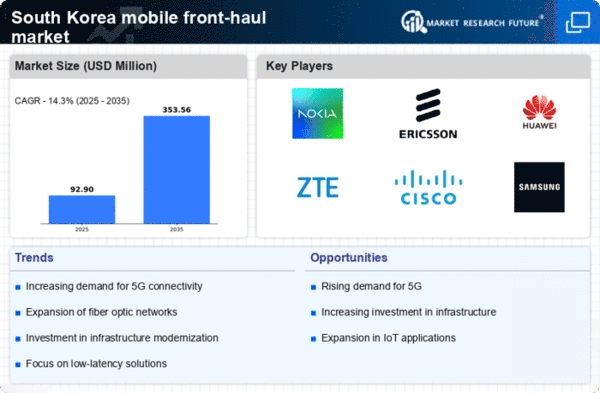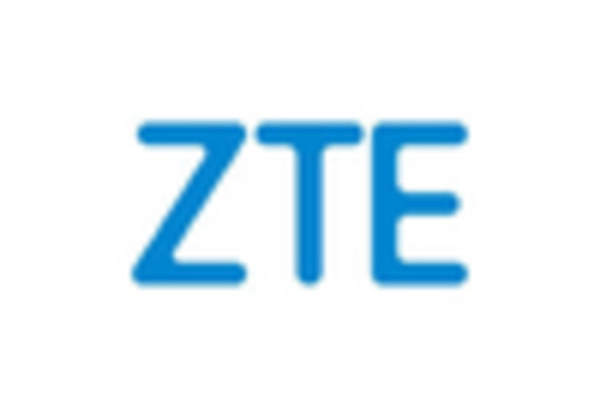Expansion of 5G Networks
The ongoing expansion of 5G networks significantly influences the mobile front-haul market in South Korea. With the government aiming for nationwide 5G coverage by 2026, telecom companies are compelled to enhance their front-haul capabilities to accommodate the increased data traffic associated with 5G services. This transition is expected to drive investments exceeding $10 billion in network infrastructure over the next few years. The mobile front-haul market must adapt to these changes, as the demand for low-latency and high-capacity solutions becomes critical for supporting advanced applications such as augmented reality and smart cities.
Emergence of Edge Computing Solutions
The emergence of edge computing solutions is reshaping the mobile front-haul market in South Korea. By processing data closer to the source, edge computing reduces latency and enhances the performance of mobile applications. This trend aligns with the increasing demand for real-time data analytics and low-latency services, particularly in sectors such as healthcare and autonomous vehicles. As companies invest in edge computing infrastructure, the mobile front-haul market is expected to evolve, providing the necessary support for these innovative technologies and ensuring efficient data transmission across networks.
Increased Focus on Network Virtualization
The mobile front-haul market in South Korea is witnessing a shift towards network virtualization, which allows for more efficient resource management and cost reduction. Telecom operators are increasingly adopting software-defined networking (SDN) and network functions virtualization (NFV) to streamline their operations. This trend is likely to enhance the flexibility and scalability of mobile networks, enabling operators to respond swiftly to changing market demands. The mobile front-haul market is thus expected to benefit from this technological evolution, as it facilitates the deployment of innovative services and improves overall network performance.
Rising Demand for High-Speed Connectivity
The mobile front-haul market in South Korea experiences a notable surge in demand for high-speed connectivity. As consumers increasingly rely on mobile devices for various applications, the need for faster data transmission becomes paramount. This trend is further amplified by the proliferation of IoT devices, which are expected to reach over 30 million units by 2026 in South Korea. Consequently, telecom operators are investing heavily in upgrading their infrastructure to support higher bandwidth requirements. The mobile front-haul market is thus poised for growth, as operators seek to enhance their service offerings and meet consumer expectations for seamless connectivity.
Growing Investment in Smart City Initiatives
The mobile front-haul market in South Korea is positively impacted by the growing investment in smart city initiatives. As urban areas increasingly integrate technology to improve infrastructure and services, the demand for robust mobile networks escalates. The South Korean government has allocated approximately $2 billion for smart city projects, which necessitate advanced mobile front-haul solutions to support real-time data processing and communication. This investment is likely to drive the mobile front-haul market, as it creates opportunities for telecom operators to provide essential connectivity for smart city applications.
















